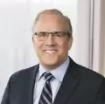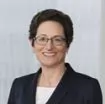The physician supervision provisions in the OPPS/ASC Final Rule provide much needed guidance and clarification, but also will provide compliance challenges for hospitals.
In July 2009, the Centers for Medicare and Medicaid Services (CMS) proposed revisions to existing requirements for supervision of hospital outpatient therapeutic ("incident to") and diagnostic services. The proposed revisions addressed supervisor qualifications, supervision in the hospital or on-campus provider based departments (PBDs), and supervision in "off-campus" PBDs.
The Hospital Outpatient Prospective Payment System (OPPS)/Ambulatory Surgical Center Payment System and Calendar Year 2010 Payment Rates final rule (the Final Rule), effective January 1, 2010, finalizes these proposals with only a few modifications. These changes provide additional clarity and flexibility regarding the supervision requirements for hospital (including critical access hospital) outpatient therapeutic and diagnostic services as compared to the "clarification" that CMS issued in the preamble of the 2009 OPPS rule (for more information, click here), but also present challenges for hospitals that previously relied on the presumption of supervision for on-campus services. A summary of the final provisions for supervision of hospital outpatient therapeutic and diagnostic services is set forth here.
Hospital Outpatient Therapeutic Services
Supervisory Authority Is Extended to Certain Non-Physician Practitioners
CMS finalized its proposal to expand supervisory authority to certain non-physician practitioners with one modification to include an additional category of non-physician practitioners based on public comments.
Specifically, the following non-physician practitioners may directly supervise services that they can personally furnish in accordance with their state law scope of practice and hospital-granted privileges: clinical psychologists, nurse practitioners, physician assistants, clinical nurse specialists and certified nurse-midwives. In response to comments, CMS is also including licensed clinical social workers (LCSWs) in the list of non-physician practitioners because LCSWs are recognized under Medicare as independent practitioners. Some commenters requested that CMS expand the list of non-physician practitioners further to include pharmacists and registered nurses. However, CMS declined to make this extension because, unlike LCSWs, pharmacists and registered nurses cannot enroll in Medicare as independent practitioners. Finally, the preamble makes clear that all non-physician practitioner collaboration or supervision requirements must continue to be met.
The expanded supervisory authority for non-physician practitioners does not apply to cardiac rehabilitation, intensive cardiac rehabilitation or pulmonary rehabilitation services. The preamble notes that CMS does not have the flexibility to modify these supervisory requirements under 42 U.S.C. 1395x(eee)(1) & (fff)(1), which specifically require direct physician supervision of these services.
Extending supervisory authority to non-physician practitioners will provide hospitals with some additional flexibility. However, the practical limitations on this change is that the non-physician practitioner's supervisory authority is limited to only those services that he or she can personally perform.
The "Direct Supervision" Requirement Can Be Met Anywhere on Campus
For on-campus outpatient therapeutic services, CMS had proposed to allow a physician or non-physician practitioner to meet the direct supervision requirement if he or she is present "in the hospital" or on-campus PBD and is immediately available to furnish assistance and direction throughout the performance of the procedure. The Final Rule provides an important revision to this requirement. In response to comments, CMS determined that the supervising physician or non-physician practitioner can be anywhere on the hospital campus, including a physician's office, an on-campus skilled nursing facility, rural health clinic or other non-hospital space.
The Supervising Physician or Non-Physician Practitioner Must Be "Immediately Available"
CMS did not define "immediately available" in the Final Rule. CMS confirmed in the Final Rule that the supervising physician need not be in the treatment room, and that hospital policies may provide for supervision "commensurate with the complexity of the service." However, CMS also adds "including personal supervision, where appropriate." Unfortunately, this reference to "personal supervision" clouds the long-standing distinction between "direct" and "personal" supervision, and therefore, some ambiguity remains about the applicable proximity/availability standard.
The Supervising Physician for a Therapeutic Service Must Be Able to Perform the Service
In order to meet the immediately available requirement, the physician or non-physician must be able to step in and perform the service, not simply respond to an emergency. In the preambles to both the proposed and Final Rules, CMS indicates that the service or procedure must be within the supervising physician's or non-physician practitioner's scope of practice and hospital-granted privileges.
The Services Must Be Provided "in the Hospital" or PBD
Although the supervising physician may be in an on-campus location that is not "in the hospital" (so long as the supervising physician is "immediately available"), the outpatient therapeutic service itself must be performed "in the hospital" or PBD. The rule provides that "in the hospital" means the main building(s) of a hospital that are under the ownership, financial and administrative control of the hospital; that are operated as part of the hospital; and for which the hospital bills the services furnished under the hospital's CMS Certification Number. Commenters raised concerns that the term "ownership" could be narrowly construed and thus potentially exclude leased space or space that is operated under other types of operation agreements. However, the preamble confirms that "ownership" applies to actual business operations and not solely a physical building.
Direct Supervision for Off-Campus PBDs Has Not Changed
CMS finalized without modification its proposal that, for off-campus PBDs, the physician or non-physician practitioner must be present in the off-campus PBD and immediately available to furnish assistance and direction throughout the performance of the procedure. The preamble points out that the direct supervision requirement for off-campus PBDs has not changed and reiterates long-standing policy that while the physician or non-physician must be in the off-campus PBD, the physician or non-physician practitioner does not need to be in the room where the procedure is being performed. Accordingly, a physician in a physician office would not meet this location requirement for an off-campus PBD in another part of the same building.
Outpatient Diagnostic Services
Only Physicians Can Supervise Outpatient Diagnostic Tests
Several commenters encouraged CMS to allow non-physician practitioners to supervise diagnostic tests because these practitioners can order and perform diagnostic tests if they are within their scope of practice under state law. In response, CMS reiterated that historically, physician assistants, nurse practitioners, clinical nurse specialists and certified nurse-midwives have not been permitted to function as supervisory physicians for diagnostic tests, and CMS continues to believe it is appropriate only to allow physicians to provide supervision of hospital outpatient diagnostic services.
Follow Supervision Requirements for Individual Diagnostic Tests as Listed in the Medicare Physician Fee Schedule Relative Value File
CMS finalized without modification its proposal that all hospital outpatient diagnostic services provided directly or under arrangement in a hospital's main buildings, PBDs or at a non-hospital location will follow the physician supervision requirements for individual tests listed in the Medicare Physician Fee Schedule Relative Value Unit file.
For these services, the direct supervision requirements are the same as those for therapeutic services provided on-campus or in an off-campus PBD discussed earlier. The existing requirements for direct supervision in the office setting set forth in 42 C.F.R. §§ 410.32(b)(3)(ii) apply to hospital outpatient services provided under arrangement in physician offices and other non-hospital locations. The definitions of general and personal supervision as defined in existing regulations at 42 C.F.R. §§ 410.32(b) also apply.
CMS to Exercise Enforcement Discretion for On-Campus Hospital Outpatient Therapeutic Services Furnished in 2000-2008
Importantly, the preamble recognizes that there was a need for additional clarification of the direct supervision requirements, and that CMS did not provide much guidance between 2000 and 2008. Accordingly, the preamble indicates that CMS will exercise its discretion to decline to enforce situations involving claims for hospital outpatient therapeutic services furnished on the hospital campus in 2000 through 2008 where a hospital did not comply with the direct physician supervision requirements as a result of errors or mistakes. The preamble does not indicate any such flexibility with respect to services provided in 2009, however, and also reiterates that the final supervision policies for hospital outpatient therapeutic services described in the final rule will be subject to enforcement beginning January 1, 2010.
Conclusion
The HOPPS/ASC Final Rule is a significant step forward in providing much needed guidance and clarification for supervision of hospital outpatient services. Hospitals should review the rule carefully and consider its impact on existing supervision policies and procedures and whether any modifications are required.
The content of this article is intended to provide a general guide to the subject matter. Specialist advice should be sought about your specific circumstances.



